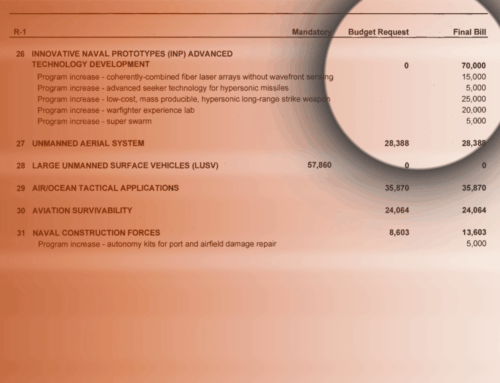Just a couple of days ago Senate Finance Committee Chairman Ron Wyden (D-OR) released his new and improved tax extenders package that promised to cut a dozen of the well-entrenched special interest provisions. Oh well, the best laid plans of mice and politicians.
As we explained last week, tax extenders are a hodge-podge of generally narrow interest tax expenditures (breaks) that are only authorized for a year or two. Over time the package has grown to include more than 50 provisions ranging from benefits for NASCAR track owners to write offs for race horse owners, from subsidies for film and television production to tax breaks for alternative fuels and biodiesel. There’s a litany of energy related tax breaks that in some cases serve competing purposes. You can read about all of them in our handy-dandy summary here.
In truth the package should be called tax break revivers. All of the tax extenders in the package have actually expired, most turning into a pumpkin when the ball dropped in Times Square New Year’s Eve. Days after making much ballyhooed promises that this tax extenders package would be different: that NASCAR track owners would be left in the pits and Hollywood would lose their tax break, the Committee produced a bill that’s business-as-usual. Pretty much everything got added back in. In fact, some new provisions seem to have been added. Talk about taking wind out of the tax reform sails – speaking of which the wind production tax credit got added back – this is a very inauspicious start to comprehensive tax reform in the new Chairman Wyden era. The Chairman even promised to hold votes on the controversial items, in fact they got rolled into one amendment adopted on voice vote before the whole package was adopted by voice vote (pdf). Good luck figuring out who supported and who opposed.
House Ways and Means Committee Chairman Dave Camp (R-MI) promises to take up his version of the extenders package in the coming weeks. He also promises to scrutinize each provision. We certainly hope so because in reality, Congress should reject the whole package and concentrate on comprehensive tax reform – if these provisions are worthy, they should be included in the code, if not they should be scrapped. Extending a provision for two years five times costs the same as a ten year provision, but in Congressional budget scoring terms, a two year extension is costed out as just a two year extension. This allows Congress to hide the true cost of provisions that are likely to get extended again by pretending they won’t. It’s time to end the gimmicks and the games.
To get a better understanding of the true costs of these provisions, you must look at what they will cost if they end up in place over 10 years because history shows that they will likely be extended time and again. Much of the reporting has pegged the cost of the total package at $85 billion over ten years, but the provisions expire at the end of 2015. A likely ten year cost would be far higher. For example, in fiscal year 2014 and 2015 the bonus depreciation break is estimated to reduce revenue by nearly $82 billion. But after it “expires” at the end of 2015, the Joint Committee on Taxation calculates (pdf) it will start to raise tax revenue resulting in only a $2.8 billion net cost over ten years. That’s a fraction – 3.5 percent in fact – of the cost over the first two years. But the truth is the provision was first created in 2002 (pdf), and that when Congress extends the break (like they did in 2003), then extends it again (2008), and again (2009, 2010, 2012), it’s likely to lose hundreds of billions of dollars in revenue.
The ball is in House Ways and Means Committee Chairman Camp’s court. We’ll see how reform ideas hold up there. We don’t expect this to go anywhere too fast. Like a little caboose that could, this package will be attached to whatever train is moving through the Capitol Hill station in the post-election lame duck.










